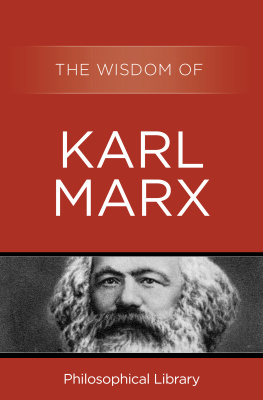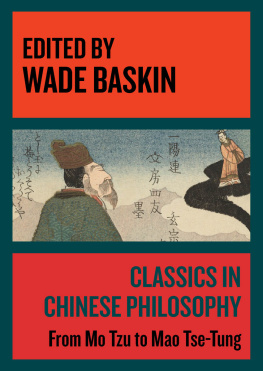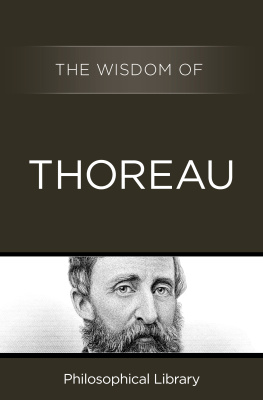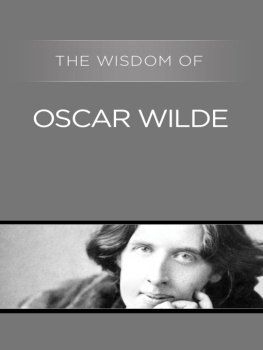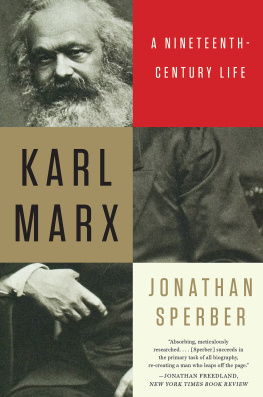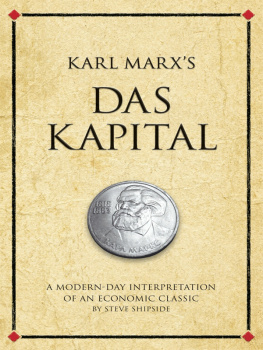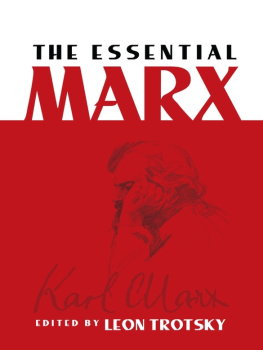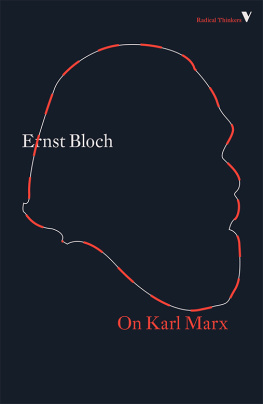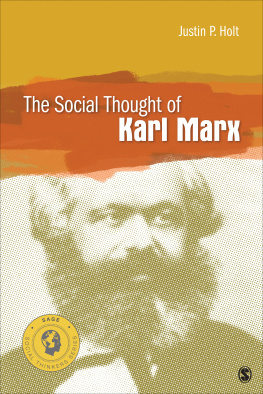The Wisdom of
Karl Marx
Philosophical Library

Contents
Karl Marx was born in Trier, Germany, in 1818 and died in London in 1883. During his later years he became an important social philosopher and a radical political leader, and is renowned today as the father of modern communism.
The son of a jurist, Marx had originally intended to follow his fathers profession, but his study of law was terminated by a growing interest in philosophy. He finally decided to devote all his time to philosophy and took a Ph.D. degree in 1842. Shortly thereafter he became editor of a radical newspaper. This paper was suppressed by the German government, and in 1843 Marx left Germany to settle in Paris. It was here that he encountered Friedrich Engels, who was to be his life-long friend and patron. Having become a confirmed socialist, Marx published, in 1848 and with the aid of Engels, the famous Communist Manifesto, in which he set forth the basic tenets of his radical philosophy. Returning to Germany in 1848 in order to participate in revolutionary movements there, he met with official disapproval and was forced to flee the country after two years. He found exile in London in 1850 and remained in the British capital for the rest of his life, existing most of the time in dire circumstances, and supporting himself with odd journalistic assignments as well as with the occasional financial contributions of Engels. In 1867 he published the first volume of his monumental work Das Kapital, which was eventually to change the shape of the world.
Das Kapital, subsequently published in three volumes, has exerted an enormous influence on the modern world. Marx combined a powerful and profound mind with a capacity for inexhaustible research and study. He made himself thoroughly familiar with all traditional and contemporary economic philosophies, and used this knowledge as a frame of reference for his study of the British economic system. As a result of his disenchantment with the conditions that existed in his time in England, he repudiated all existing socialistic theories as either utopian or unsocialistic and developed a dynamic theory of social change which became the basis of scientific socialism and dialectical materialism. It is from these that most forms of socialism and communism are derived today.
Objective critics have tended to consider Marx as one of the greatest of economic theorists, one whose views cannot be lightly discounted, but whose system, like all systems, is seriously hampered by its rigidly doctrinaire nature.
MORRIS STOCKHAMMER
| C. | Capital (1, 2, 3, 4) |
| C. C. | Contribution to the Critique of Hegels Philosophy of Right |
| C. M. | Communist Manifesto |
| C. W. | Civil War in France |
| D. E. | Differences between the Philosophy of Democritus and the Philosophy of Epicurus |
| D. T. | Articles in the N. Y. Daily Tribune |
| E. B. | The Eighteenth Brumaire of Louis Bonaparte |
| G. I. | German Ideology |
| H. F. | Holy Family |
| H. P. | Demonstration in Hyde Park |
| I. Q. | The Indian Question |
| J. Q. | Papers on the Jewish Question |
| L. A. | Leading Article of No. 179 of Koelnische Zeitung |
| M. | Manuscripts of 1844 |
| P. E. | A Contribution to the Critique of Political Economy |
| P. P. | Poverty of Philosophy |
| T. F. | Theses on Feuerbach |
All references are made to Karl Marxs Works Gesamtausgabe and to their translations by Moore and Aveling.
ABOLITION OF PROPERTY
The abolition of existing (private) property relations is not at all a distinctive feature of communism .... The distinguishing feature of communism is the abolition of bourgeois (private) property.C. M.
ABSOLUTE KNOWLEDGE
Mind, this thinking returning home to its own point of originthe thinking which, as the anthropological, phenomenological, psychological, ethical, artistic and religious mind is not valid for itself, until ultimately it finds itself, and relates itself to itself, as absolute knowledge in the hence absolute, i.e., abstract mind, and so receives its conscious embodiment in a mode of being corresponding to it.M.
ABSOLUTE SURPLUS-VALUE
The surplus-value produced by prolongation of the working day, I call absolute surplus-value.C. 1.
ABSORPTION OF LABOR
The means of production are at once changed into means of absorption of the labor of others. It is now no longer the laborer that employs the means of production, but the means of production that employ the laborer. Instead of being consumed by him as material elements of his productive activity, they consume him as the ferment necessary to their own life-process, and the life-process of capital consists only in its movement as value constantly expanding, constantly multiplying itself.C. 1.
ANTAGONISM, SOCIOLOGICAL
The bourgeois relations of production are the last antagonistic form of the social process of productionantagonistic not in the sense of individual antagonism, but of one arising from the social conditions of life of the individuals; at the same time the productive forces developing in the womb of bourgeois society create the material conditions for the solution of that antagonism.P. E.
ANTAGONISM OF INTERESTS
We find that the hostile antagonism of interests is recognized as the basis of social organization.M.
ANTIQUATED
The antiquated tries to maintain and re-establish itself within the new order.Ltr. to Bolte.
ANTIQUITY
In antiquity, material productive labor bore the stigma of slavery and was regarded merely as a pedestal for the idle citizen.C. 4.
ANTI-SEMITISM
What is stated as theory in Jewish religion, namely, contempt for theory, art, history and man as an end in himself, is an actual and conscious point of view, held to be virtuous by the man of money. Even the relations between the sexes, between man and woman, become an object of commerce. The law of the Jew, lacking all solid foundation, is only a religious caricature of morality and of law in general, but it provides the formal rites in which the world of property clothes its transactions.J. Q.
APHORISTIC STYLE
The wealth and diversity of the subjects to be treated could have been compressed into one work only in a purely aphoristic style; whilst an aphoristic presentation of this kind, for its part, would have given the impression of arbitrary systematizing.M.
APOSTASY
Every philosophy of the past without exception was accused by the theologians of apostasy.L. A.
ASIATIC AGRICULTURE
In Asiatic empires we are quite accustomed to see agriculture deteriorating under one government and reviving again under some other government. There the harvests correspond to good or bad governments, as they change in Europe with good or bad seasons.D. T.
The artificial fertilization of the Asiatic soil, dependent on a central government, and immediately decaying with the neglect of irrigation and drainage, explains the otherwise strange fact that we now find whole territories barren and desert that were once brilliantly cultivated, as Palmyra, Petra, the ruins in Yemen, and large provinces of Egypt, Persia, and Hindustan; it also explains how a single war of devastation has been able to depopulate a country for centuries, and to strip it of all its civilization.D. T.
Next page
